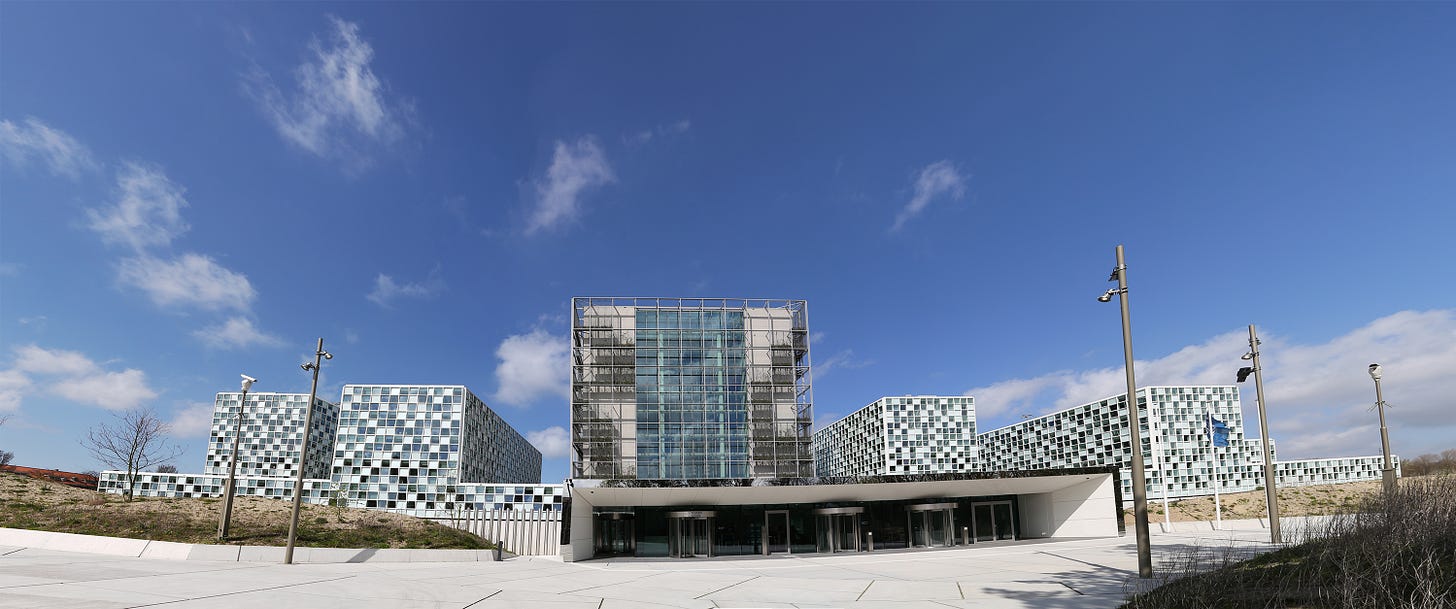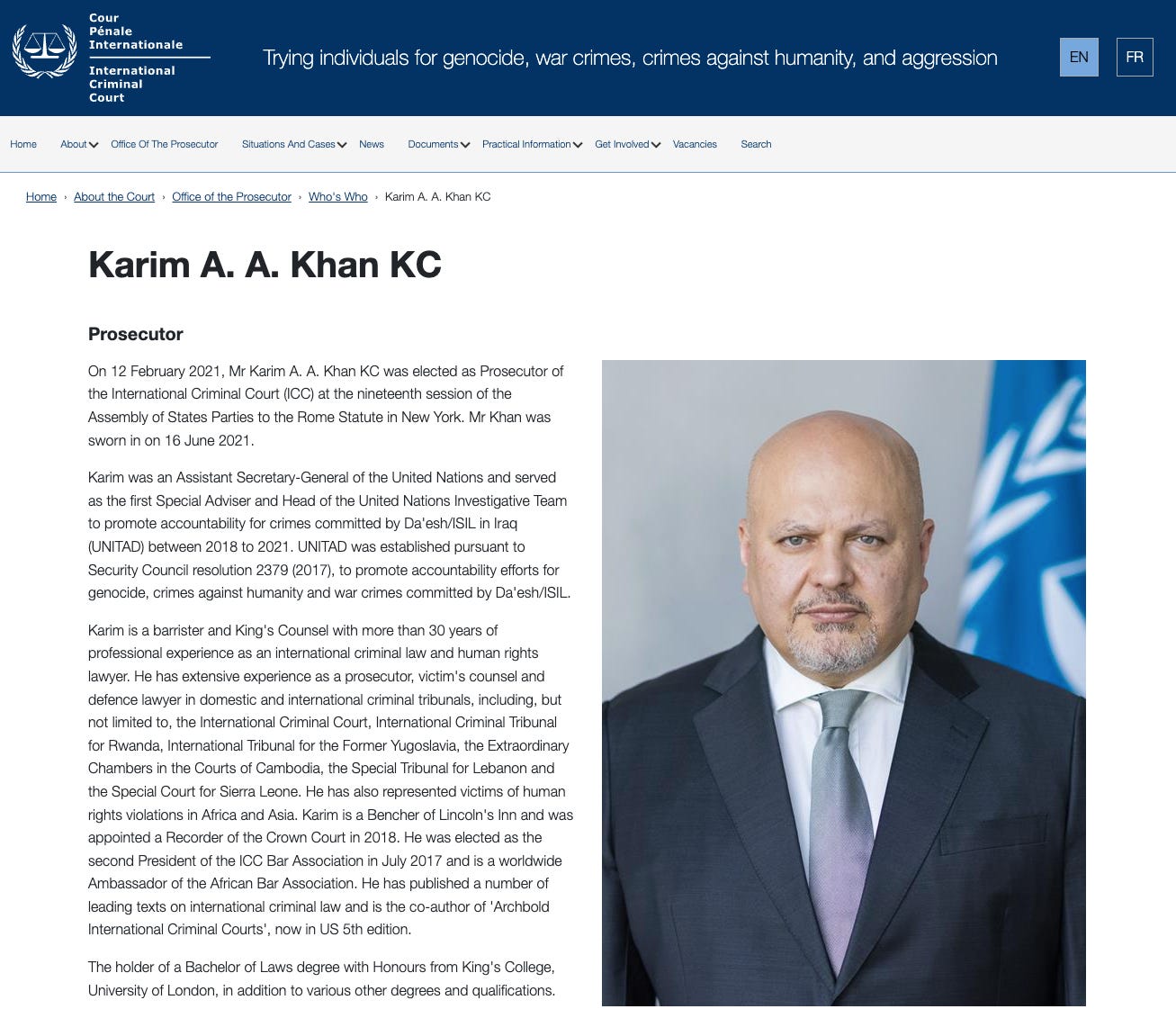The Hague Turns its Gaze Toward Cyberspace
Disinformation, hate speech, and attacks against critical infrastructure will now be considered by the International Criminal Court.
The International Criminal Court (ICC), a body established by the Rome Statute in 1998, has a long history of focusing on crimes of physical violence, such as genocide and war crimes. These cases have often unfolded in clearly defined physical spaces—from the fields of Darfur to the streets of the former Yugoslavia.
But Karim A.A. Khan KC, the third Prosecutor of the ICC, is working to update the court's perspective, broadening its scope to tackle 21st-century forms of warfare and criminality.
His recent article on this subject, launched without fanfare alongside the thoughts of other prominent international experts on the topic of “Digital Front Lines”, represents a distinct departure from the ICC's traditional focus and fits into Khan's broader efforts to modernize the court.
Khan extends his analysis beyond traditional battlefields to address the complexities of cyber warfare, which he argues can meet the criteria of international crimes under the ICC's existing framework. While the Rome Statute does not have specific provision for cybercrimes, Khan suggests that the essence of a crime against humanity or a war crime can still be captured under these existing modalities. He says cyber operations, such as ransomware attacks on hospitals or power grids, could potentially be prosecuted as crimes against humanity, emphasizing that their impacts can be immediate and severe.
A particularly novel aspect of Khan's argument focuses on hate speech and disinformation, which he identifies as mechanisms that can pave the way for mass violence, including genocide. This raises new legal questions about the culpability of those seeking to incite violence through digital channels.
The prosecutor's comments indicate that the ICC may be moving toward recognizing these digital conduits for atrocity as prosecutable offenses, thus broadening the interpretation of what constitutes a war crime or a crime against humanity in the digital age.
Khan also addresses what he refers to as 'grey zone' activities—those actions in the cyber realm that exist in the ambiguous space between peace and war, legality and illegality. He notes that tackling these issues requires a whole-of-society approach involving multiple sectors. This shift in thinking underscores the necessity for international cooperation beyond just the legal community, encompassing technology experts, government actors, and private organizations.
Khan's article, coupled with his tough stance towards Russia's actions in Ukraine, makes it increasingly plausible to infer that he is taking aim at Russia's highly aggressive and notorious behavior in cyberspace against declared and undeclared enemies alike.
This is underscored by the fact that Russia recently placed Khan on an entry ban list in retaliation for ICC actions against Russian citizens and entities, especially the issuance of an arrest warrant for Russian President Vladimir Putin and Russia’s commissioner for children’s rights Maria Alekseyevna Lvova-Belova on the grounds of war crimes in March.
Reuters reported that Khan attended an international justice ministers meeting in London to discuss scaling up support for the ICC in the wake of Russia’s war of aggression against Ukraine, and said:
“It is really a very sad occasion and a very sombre occasion, that for the first time ever, judges of the International Criminal Court, of any court, have felt it necessary to issue warrants against a leader and senior state officials from a permanent member of the (U.N.) Security Council.”
Khan's emphasis on the seriousness of cybercrimes, particularly those that could be classified as war crimes or crimes against humanity, fits into a broader geopolitical context in which Russia's cyber activities have been a major point of contention. The developments indicate that the ICC, under Khan's leadership, is likely aligning itself to play a pivotal role in holding states accountable for their cyber actions, with Russia being a prime subject of attention.
The U.S.'s renewed focus on cooperation with the ICC only adds weight to this inference.

In sum, Khan's framework not only heralds a new direction for the ICC but also offers a window into his own evolving perspective on justice in an interconnected age. The prosecutor suggests that he considers the digital realm not as a separate or lesser battlefield but as an integral space where human suffering and legal accountability should be equally addressed. This focus on the moral weight of crimes in cyber contexts aligns with his broader efforts to modernize the court and adapt to new realities.
Khan’s nuanced approach implies that a diverse set of actors—from nations to corporations to individuals—will need to adapt to these new paradigms, ensuring that the ICC's principles of justice are upheld, even as the front lines of conflict and crime continue to evolve.


